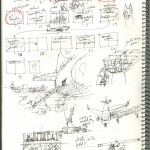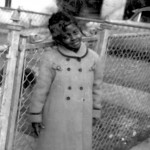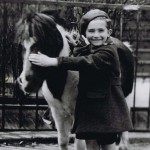 When I start a book I know what it’s going to be about, but I almost never know the best way to tell the story. With Jet Plane: How It Works (David Macaulay Studio, 2012), I started with elephants. I was thinking about how remarkable it is that heavy things can fly.?
When I start a book I know what it’s going to be about, but I almost never know the best way to tell the story. With Jet Plane: How It Works (David Macaulay Studio, 2012), I started with elephants. I was thinking about how remarkable it is that heavy things can fly.?Guest Blogger: David Macaulay
 When I start a book I know what it’s going to be about, but I almost never know the best way to tell the story. With Jet Plane: How It Works (David Macaulay Studio, 2012), I started with elephants. I was thinking about how remarkable it is that heavy things can fly.?
When I start a book I know what it’s going to be about, but I almost never know the best way to tell the story. With Jet Plane: How It Works (David Macaulay Studio, 2012), I started with elephants. I was thinking about how remarkable it is that heavy things can fly.?


 Working with Nic Bishop on a “Scientists in the Field” book always entails thrilling moments. Together, with the men and women whose work we chronicle, we’ve handled wild tarantulas in French Guiana, walked among 18,000 slithering snakes in Canada, and traveled on Bactrian camels in Mongolia in search of snow leopards.?
Working with Nic Bishop on a “Scientists in the Field” book always entails thrilling moments. Together, with the men and women whose work we chronicle, we’ve handled wild tarantulas in French Guiana, walked among 18,000 slithering snakes in Canada, and traveled on Bactrian camels in Mongolia in search of snow leopards.?
 Daydreaming becomes a strong muscle if you exercise it often enough. By the time I was ten, I could lasso a daydream and ride the wind. Who wouldn’t want to do that?
Daydreaming becomes a strong muscle if you exercise it often enough. By the time I was ten, I could lasso a daydream and ride the wind. Who wouldn’t want to do that?
 I like to say that I began writing before I knew how to write. By that I mean that I made up stories, acting them out with my dolls and stuffed animals, turning them into plays to perform with my neighborhood friends, or dictating them to my father, who would then type them out on the manual typewriter his father gave him when he was a young man. Writing, in my head and on paper, was my way of making sense of the world and my place in it.
I like to say that I began writing before I knew how to write. By that I mean that I made up stories, acting them out with my dolls and stuffed animals, turning them into plays to perform with my neighborhood friends, or dictating them to my father, who would then type them out on the manual typewriter his father gave him when he was a young man. Writing, in my head and on paper, was my way of making sense of the world and my place in it.
 The whole thing started in 2008, when I was working as Congressman John Lewis’s press secretary during his primary campaign.
The whole thing started in 2008, when I was working as Congressman John Lewis’s press secretary during his primary campaign.
 When I was a kid I was an explorer and a researcher. At the public library I discovered books that opened doors to hidden worlds and strange mysteries. One book led to another, and another, and on it went.
When I was a kid I was an explorer and a researcher. At the public library I discovered books that opened doors to hidden worlds and strange mysteries. One book led to another, and another, and on it went.